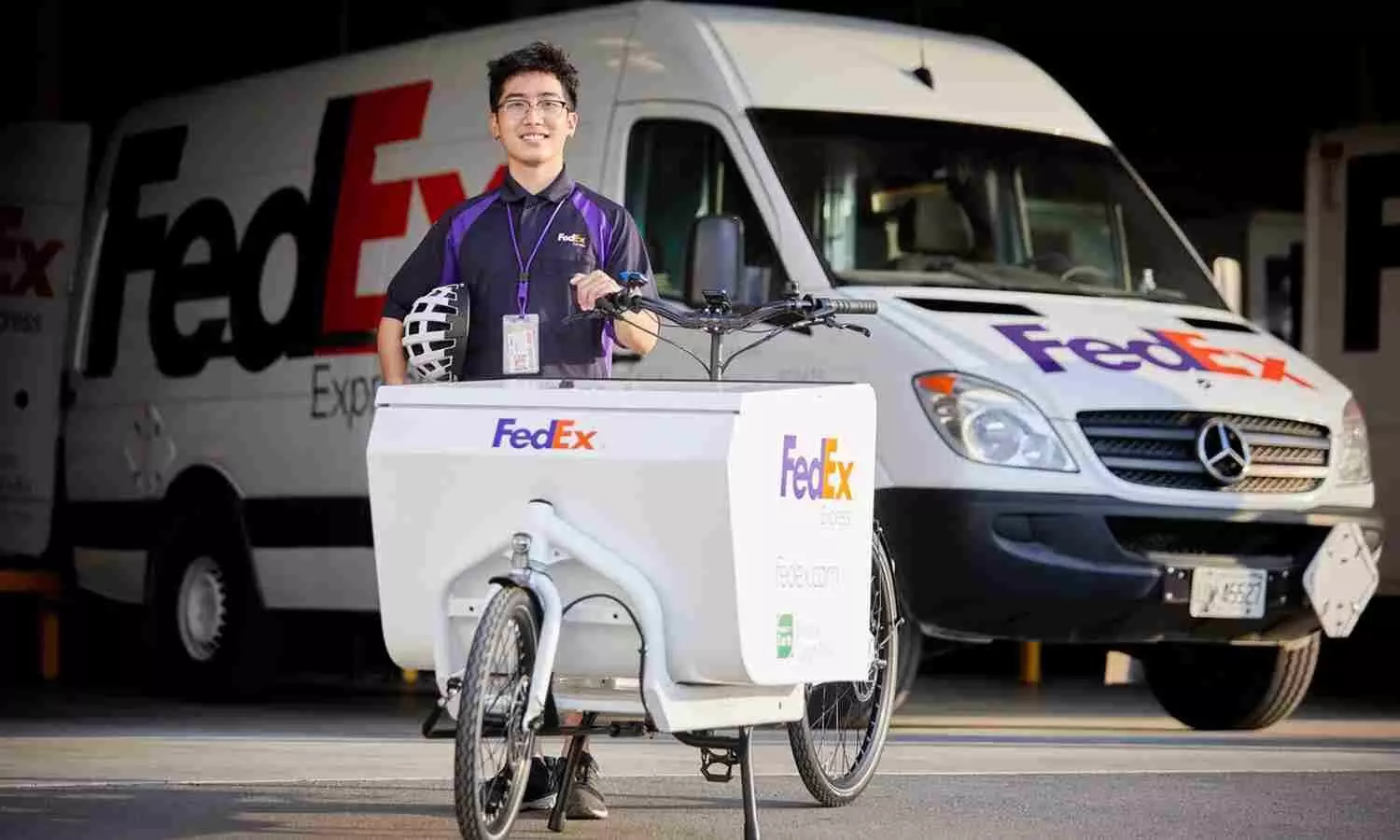
Sustainability is important in eCommerce: FedEx research
Consumers in India placed greater priority on sustainability than those in Taiwan, Hong Kong, Malaysia, who conversely are more likely to focus on delivery lead time.

New research commissioned by FedEx Express shows that small- and medium-enterprises (SMEs) that embraced eCommerce during the COVID pandemic are underestimating the importance consumers now place on sustainability in their purchase decision-making.
85% of Indian SMEs surveyed said their customers are more interested in receiving their goods as quickly as possible rather than in sustainable shopping. A similar number, 80%, thought that receiving goods as cheaply as possible is more important to customers. Insights from consumers show the reality is very different.
The What's Next in eCommerce survey polled SMEs and consumers in India, and 10 other markets in the Asia Pacific, Middle East and Africa region (AMEA) in July 2022. The poll explored the continuing evolution of eCommerce in the region and identified trends that could fuel their future growth.
Key Finding: Consumers want both sustainability and speed
The accelerated growth of eCommerce during the COVID-19 pandemic occurred as consumer concerns over the environment continued to grow. For a significant number of consumers, the future of the planet is top of mind, and they do not want to compromise – they want both sustainability and speedy delivery. In India, 70% of those surveyed expressed as much interest in receiving their goods quickly as they did in the sustainability of the online shopping process.
Consumers in India placed greater priority on sustainability than those in Taiwan, Hong Kong, Malaysia, who conversely are more likely to focus on delivery lead time.
The research shows that nine out of ten consumers in India expect SMEs to deliver sustainably and are likely to get more business. Eight out of ten prefer to buy from companies with an effective environmental, social and governance (ESG) strategy in place – but only 38% of SMEs actually have one. SMEs acknowledge that consumers expect them to run sustainable businesses, but many (74%) either fear the associated costs or are unconvinced that any investment in this area will produce a return.
Taking a more sustainable approach to delivery
"Sustainability is no longer an optional extra for SMEs interested in expanding their eCommerce businesses. Consumers increasingly see it as an essential and non-negotiable part of their decision-making process," said Kawal Preet, president of Asia Pacific, Middle East & Africa (AMEA) at FedEx Express. "SMEs can make an immediate difference by thinking about the logistics connecting their supply chain all the way to the end-consumer. At FedEx we're already taking tangible steps to mitigate the impact of delivery on the planet."
"Today, consumer consciousness towards the environment exerts a stronger influence on the way they perceive a brand, making it imperative for businesses to embrace an effective ESG strategy. Working with sustainability-focused partners, including collaborating with the right logistics provider, will go a long way for SMEs in India to play their part in limiting the impact of climate change. At FedEx we are committed to connect the world responsibly and resourcefully and are continuously working towards providing a more sustainable supply chain ecosystem," said Kami Viswanathan, Senior Vice President of FedEx Express Middle East, Indian Subcontinent and Africa Operations.
FedEx is following a multi-track path to reduce carbon emissions in the delivery cycle with a goal of achieving carbon neutral global operations by 2040. This includes investing in electric vehicles for last-mile deliveries, and digital solutions like FedEx Ship Manager® Lite that allow consumers to fill out their shipping information using their mobile device to quickly generate a label supporting our ultimate goal of zero paper air waybills. Additionally, FedEx is implementing solutions like reusable packaging to help reduce waste in the shipping process.
For any SME, creating an effective ESG strategy is the sum of multiple, individual wins. More than 80% of the total greenhouse gas emissions made by a typical consumer-facing enterprise emanate from outside their internal operations, largely coming from manufacturing and elsewhere in their supply chains. As connectors in the chain, logistics providers have a role to play in helping to lower the possible impact on the planet to help align to consumer expectations.

